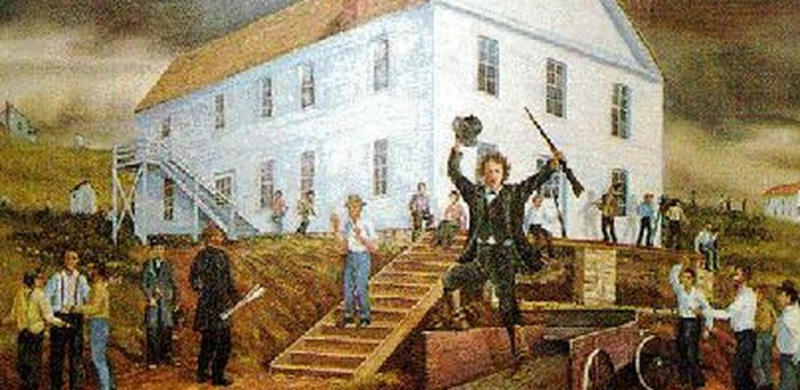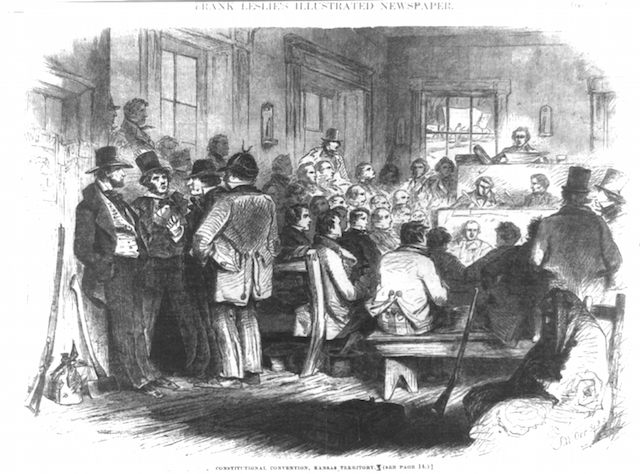Lecompton Constitution
The Kansas-Nebraska Act of 1854 established the Kansas Territory and gave its residents the option of allowing slavery. As a result, there was fighting between pro- and anti-slavery settlers, which led to the “Bleeding Kansas” era. Topeka's anti-slavery residents put up a government with the aid of Northern abolitionists. The more numerous pro-slavery settlers, many of whom came from the nearby slave state of Missouri, founded a government at Lecompton, giving the Territory for a while two distinct governments with two different constitutions, both claiming legality.
A constitution had to be approved by the majority of the state's citizens in order for Kansas to be admitted as a state. Under President Pierce, a string of deadly altercations erupted over Kansas's voting rights. The issue received widespread media coverage, and some in Georgia and Mississippi called for secession if Kansas was recognized as a free state. Buchanan opted to support the Lecompton administration's pro-slavery policies.
Without holding a vote, the pro-slavery Lecompton government drafted their constitution in October 1857 and handed it to Buchanan. Reluctantly, rejecting it, Buchanan sent federal agents to work out a deal. The Lecompton administration consented to a referendum that was restricted to the slavery issue alone.
Walker and two previous Kansas governors objected, but Buchanan ultimately chose to embrace the Lecompton Constitution. Buchanan asked that all Democrats back the administration's position on Kansas' admission under the Lecompton Constitution at a meeting with Stephen Douglas, the head of the Senate Committee on Territories, in December 1857. He delivered the Lecompton Constitution to Congress on February 2. Additionally, he sent a telegram denouncing the “revolutionary government” in Topeka and equating it with the Utah Mormons.
Buchanan went over and above to win the support of Congress, bribing members with gifts, appointments, and even money. The Lecompton Constitution was approved by the Senate in March, but it was defeated in the House by a coalition of Know-Nothings, Republicans, and northern Democrats. The 1858 English Bill, which offered Kansans quick statehood and significant public lands in exchange for recognizing the Lecompton Constitution, was supported by Buchanan instead of admitting defeat. Kansans overwhelmingly rejected the Lecompton Constitution in a vote in August 1858.








